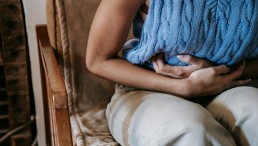CDC
Could Binge Drinking Lead To A Solution for Alcoholism? CDC Thinks So
Another Silent Killer Slowly Crawls and 'Kisses' in the U.S.
Researchers find the relation between obesity, and Latina and Black women
In United States 21 Days Signals Waning Ebola Infection
CDC Director Frieden Blamed for Ebola Missteps
Most Popular

Generative AI for a Sustainable Future

November’s Beaver Moon: Final Supermoon of the Year Peaking Mid-Month

Cloud Adoption and Migration Best Practices Key Points to Include

HIPAA Compliance in the Age of Big Data





